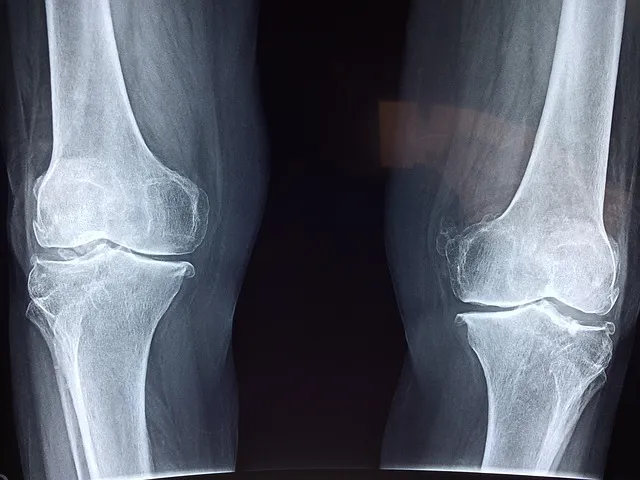Kaiser's in-network therapists offer specialized grief counseling, using evidence-based techniques and tailored support to help individuals navigate emotional losses. With qualified professionals trained in trauma-informed care, mindfulness, and crisis intervention, these therapists create safe spaces for expression and validation. They guide clients through grief, teaching healthy coping strategies and integrating cultural considerations. Empathic support, personalized care, and diverse interventions ensure comprehensive healing during the grieving process, as exemplified by Kaiser's commitment to mental wellness services.
Grief counseling is a specialized field offering crucial support during life’s most difficult transitions. This comprehensive overview explores the essential aspects of grief therapy, highlighting the critical role of trained professionals like Kaiser in-network therapists. From understanding complex grieving processes to mastering empathic communication, this guide equips readers with insights into effective practices. Learn about qualifications, common challenges, and best strategies for providing compassionate support, ensuring a more holistic approach to healing.
- Understanding Grief Counseling: A Comprehensive Overview
- The Role of Kaiser in Network Therapists for Grief Support
- Qualifications and Training for Effective Grief Counseling
- Common Challenges in Grief Therapy and Their Solutions
- Best Practices for Providing Empathic Support in Grief Counseling
Understanding Grief Counseling: A Comprehensive Overview

Grief counseling is a specialized form of psychological support designed to help individuals process and cope with the profound emotional impact of loss. This type of therapy plays a vital role in guiding people through one of life’s most challenging periods, offering them tools to navigate their grief and gradually find solace. Understanding grief counseling involves recognizing its unique approach, which focuses on providing a safe space for expression and validation of emotions related to death or significant loss.
For those seeking expert support, Kaiser in network therapists offer comprehensive grief counseling services as part of their outpatient therapy programs. These licensed professionals are equipped with the skills to assist individuals dealing with various forms of grief, including the loss of a loved one, separation from a partner, or even the end of a significant relationship. The best Kaiser therapists near me utilize evidence-based techniques tailored to each client’s unique needs, ensuring that they receive the highest quality care available within the Kaiser network. Kaiser outpatient therapy sessions provide a supportive environment where individuals can explore their emotions, develop healthy coping strategies, and gradually adapt to life after loss.
The Role of Kaiser in Network Therapists for Grief Support

Kaiser has played a pivotal role in shaping the landscape of network therapists for grief support. As a leading healthcare provider, Kaiser offers comprehensive mental health services, including specialized grief counseling. Their network of therapists is meticulously curated to ensure individuals receive expert care tailored to their unique needs. This systematic approach not only facilitates access to quality grief support but also emphasizes the importance of community-based care.
By integrating network therapy into its service portfolio, Kaiser has made significant strides in addressing grief and loss on a larger scale. The book “Kaiser Therapy Session: Navigating Grief with Expertise” highlights the effectiveness of their approach, showcasing how network therapists work collaboratively to provide holistic support. Moreover, Kaiser’s commitment to mental well-being extends beyond grief counseling; it also offers diverse depression treatment options and network therapy for anxiety, reflecting a comprehensive understanding of mental health care.
Qualifications and Training for Effective Grief Counseling

Effective grief counseling requires a combination of specific qualifications and ongoing training for therapists. To provide compassionate and skilled support to individuals navigating loss, therapists must be well-versed in the complexities of grief and trauma. Many professionals in this field hold advanced degrees in counseling, psychology, or related fields, such as a Master’s or Doctorate. This academic foundation equips them with the knowledge to understand the physiological and emotional impacts of grief on the brain.
Additionally, therapists who specialize in grief counseling often complete specialized training programs focusing on trauma-informed care, mindfulness techniques, and crisis intervention strategies. These skills enable them to assist clients in processing their emotions healthily and developing coping mechanisms tailored to their unique needs. For individuals seeking support through kaiser in network therapists or exploring kaiser mental wellness support, ensuring that the provider is adequately trained in grief counseling is essential for receiving effective care. Kaiser teen therapy services, for instance, recognize the importance of this specialized training, reflecting a commitment to comprehensive mental health support across all ages.
Common Challenges in Grief Therapy and Their Solutions

Grief counseling, while immensely impactful, comes with its share of challenges. One significant hurdle is helping clients process their emotions in a safe and constructive manner. Many individuals struggling with grief may retreat into silence or express feelings in unhealthy ways due to fear or uncertainty. Overcoming this requires creating a non-judgmental space where clients feel empowered to explore their emotions, guided by kaiser in network therapists who specialize in grief. These professionals can teach coping mechanisms and help individuals navigate their grief journey with support and understanding.
Another common challenge is addressing co-occurring disorders like anxiety or depression that often accompany loss. Kaiser eating disorder specialists, for instance, can play a crucial role in identifying and treating these complexities. By integrating various therapeutic approaches, booking kaiser therapy sessions can become more tailored and effective. Additionally, understanding cultural differences and incorporating sensitive communication styles can help therapists connect with clients from diverse backgrounds, ensuring personalized care that respects their unique experiences of grief.
Best Practices for Providing Empathic Support in Grief Counseling

Providing empathic support is a cornerstone of effective grief counseling. Kaiser in network therapists should cultivate an environment where clients feel truly heard and understood. This involves active listening, reflecting emotions back to the client, and validating their feelings of loss. By using open-ended questions and avoiding quick solutions or dismissals, therapists can help individuals process their grief in a safe space. Empathy builds trust and encourages clients to share their stories, which is crucial for healing.
Best practices also include incorporating diverse interventions tailored to individual needs. Kaiser mental health providers may utilize techniques such as cognitive-behavioral therapy (CBT) to manage anxiety and depression stemming from grief, mindfulness practices for stress reduction, or art therapy for non-verbal expression. As specialists in psychology, Kaiser therapists can offer a range of kaiser depression treatment options while maintaining a compassionate approach. This holistic support ensures that clients receive comprehensive care during their journey through grief.
Grief counseling, a specialized field requiring expertise and compassion, plays a vital role in helping individuals navigate their emotional journeys after loss. As highlighted by Kaiser’s network of therapists, effective support is achieved through comprehensive training, understanding unique challenges, and employing best practices that foster empathy. By leveraging these strategies, professionals can provide meaningful assistance to those dealing with grief, ensuring they receive the care they need to heal and find solace in their time of need. This approach, underpinned by rigorous qualifications and Kaiser’s commitment to networking therapists, offers a robust framework for compassionate support.






